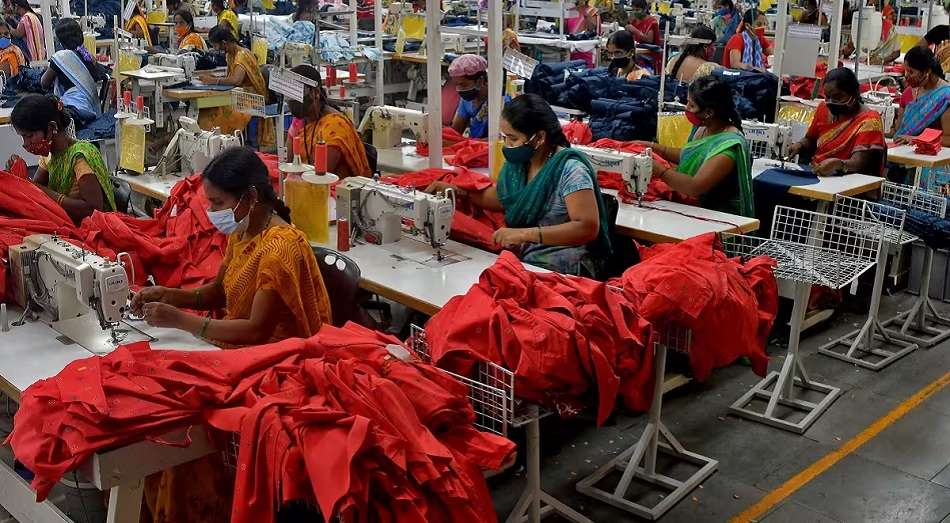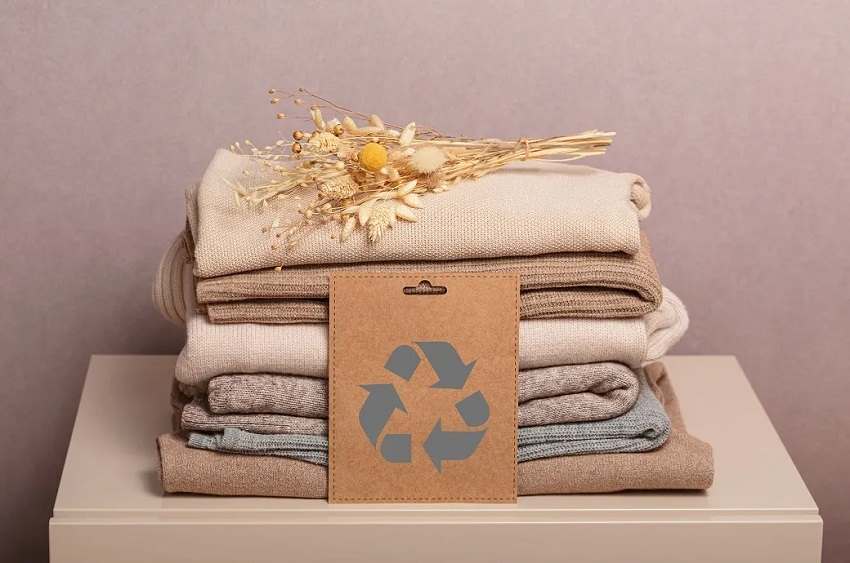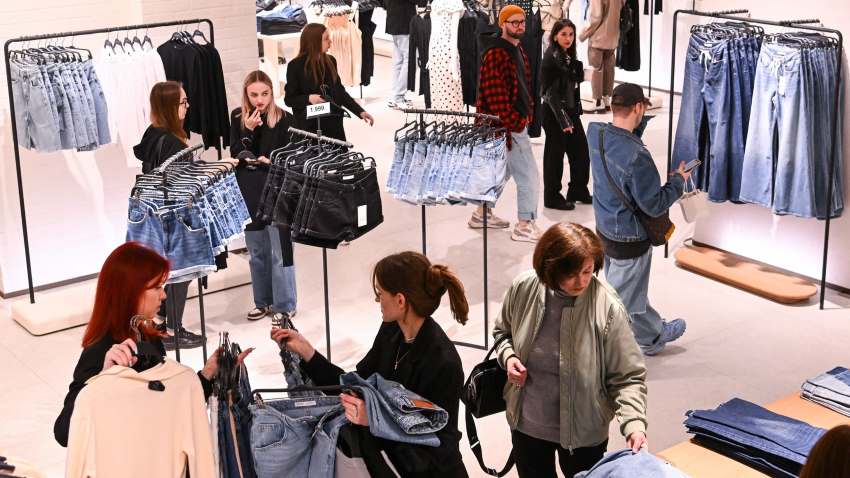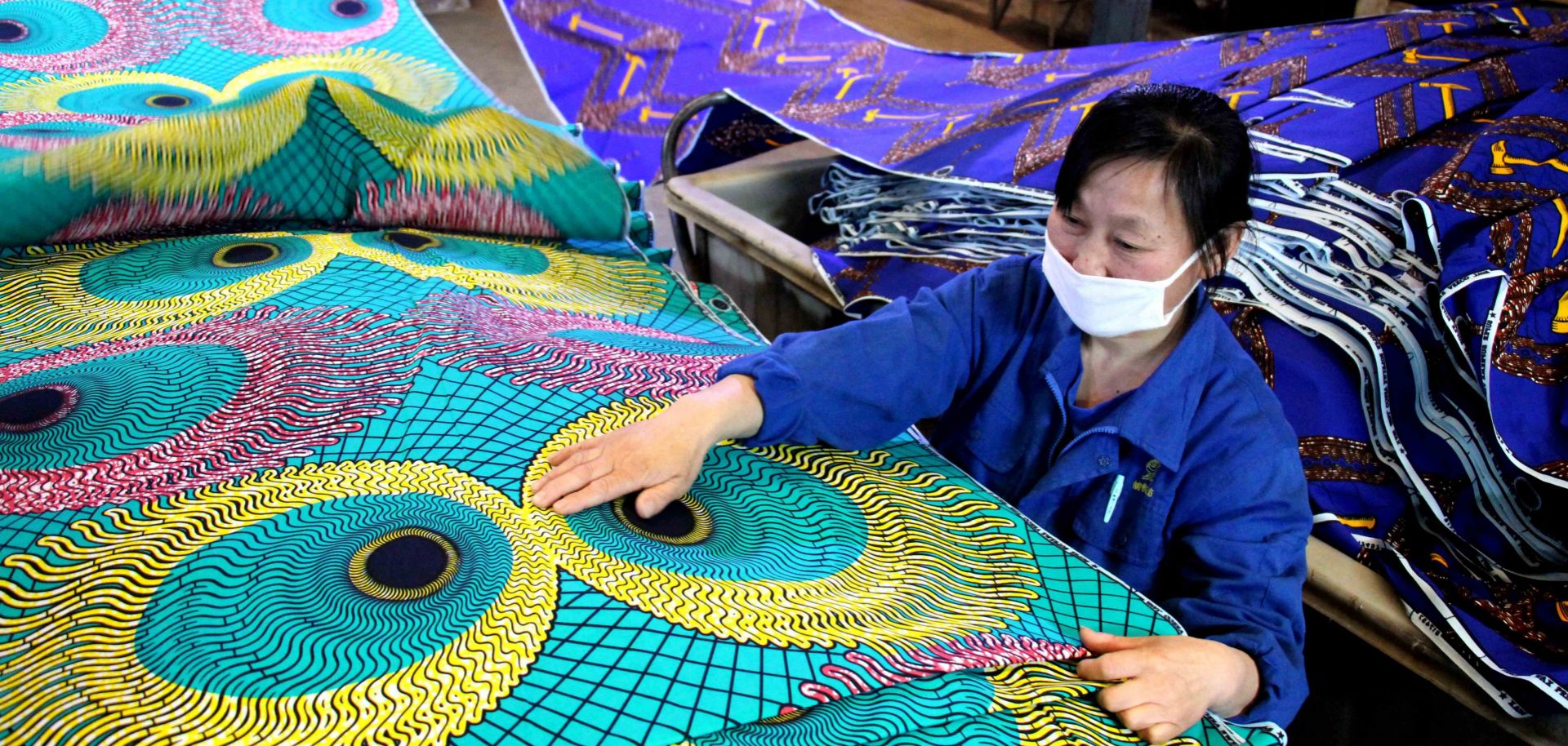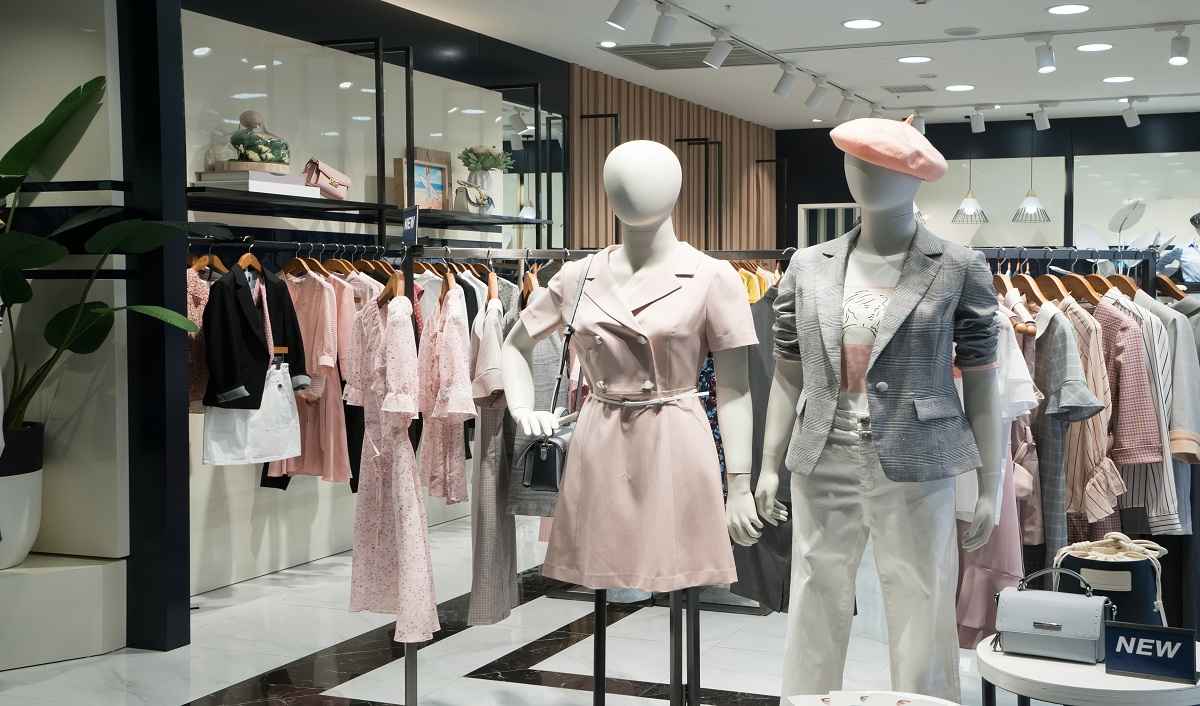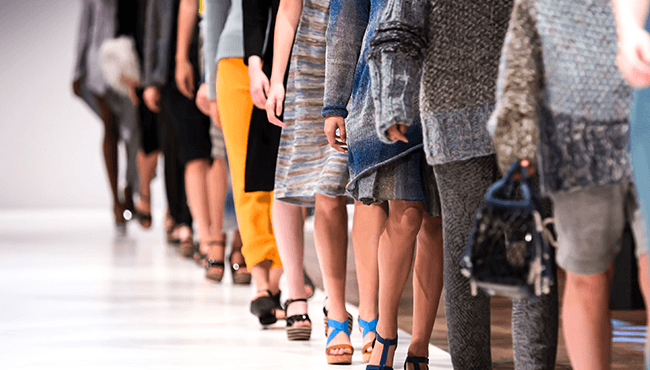FW
Coats, the world’s leading industrial thread manufacturer and a major player in the American textile crafts market, has appointed Monica McKee as Chief HR Officer. McKee will report to Rajiv Sharma, Group Chief Executive. She will also become a member of the Group Executive Team. She will be responsible for delivering the global HR strategy in support of Coats’ journey from the Industrial age to the Digital age. This covers performance management, progression planning, reward and talent acquisition. It includes implementing programmes that help retain and develop talent and deploy it more strategically, as well as developing and enhancing leadership capabilities.
McKee will be integral to Coats’ ‘Diversity and Inclusion’ initiative as well as for identifying and implementing the most effective digital solutions and tools to support the HR function at Coats in the future. Rajiv Sharma, Group Chief Executive, Coats, said: “Monica is an experienced HR professional with an excellent reputation for coaching and developing others. She has diverse industry expertise with a proven track record in delivering both operating excellence and business transformation at global companies so is well equipped to take the lead on the next phase of our people strategy. She will also bring valuable additional insight to our Group Executive Team.”
McKee joins from Bristol-Myers Squibb (BMS), a global biopharmaceutical company, where she was Head of Human Resources, Corporate Functions, based in New Jersey, US. She was accountable for driving business performance through selective, strategic and focused execution of the People Strategy. She succeeds Andy Speak who left in August 2017 to take up the role of Group Human Resources Director at DS Smith, a FTSE 250 packaging company.
Cifra, leader in warp knit seamless production presents an innovative merino wool oriented project at ISPO Munich 2018 to be held from January 28 to 31. Warp Knit Seamless, among the most recent in textile innovations, is undoubtedly one of the most significant. It has to do with the new way in which seamless is now perceived, both in terms of production technique and product, as against how conventional garments are usually made on circular or rectilinear machines. The fact that there are no seams is what prevents skin irritations from occurring and the ventilation openings make it so that moisture stays under control, with the apparel still conforming perfectly to the body like a second skin.
This new generation of sportswear is ideal for training, yoga, cycling, running and for numerous other sports. Cesare Citterio, CEO of Cifra Spa reveals, “With a production capacity of around 10,000 clothing per day, combined with special know-how, Cifra leads the way in terms of style, but also in production volumes, so much that over the course of 2017 turnover grew by over 70 per cent and with recent investments made in new machinery our position has been strengthened even more. Our design department, with its ten CAD stations creates new, customised models every day for the most important brands worldwide, in both fashion and sports related sectors.”
Among the advantages of WKS technology, three fundamental aspects must absolutely be highlighted: The absence of a diameter — the jacquard system allows for diameter sizes to be decided upon at will. Different diameters can be worked at the same time ex: body and sleeves, and gloves or leggings The garments are warp-proof — due to the WKS technique, garments are more wear resistant, and in the case of holes or tears the warp-knit mesh material still does not fray.
The American Apparel & Footwear Association (AAFA) applauded the US House of Representatives for unanimous bipartisan approval of the Miscellaneous Tariff Bill Act (H.R. 4318). AAFA sent a letter to members of the House identifying the bill as a key yes –vote and encouraged the Senate to quickly follow suit. Rick Helfenbein, President and CEO of AAFA says, “The Miscellaneous Tariff Bill (MTB) is bipartisan and provides much-needed duty relief on products and inputs that are not available domestically. Our business community is firmly behind this bill because it has a defined purpose and will be helpful on all counts.”
The MTB would temporarily eliminate or reduce import duties on over 1,700 products (both inputs and finished products) that are not made in the US. Once approved, the bill would provide the apparel and footwear industry with much needed duty relief – in 2016 the industry generated over 50 per cent of duties collected by the US government despite only accounting for six per cent of total US imports by value.
The 30th edition of the Colombiatex Textile Conference will be held at Plaza Mayor Medellín, Colombia, from January 23rd to 25th. The theme for this edition is ‘Open Your Eyes (Abre los Ojos)’, organiser Inexmoda expects the 2018 event to draw more than 15,000 buyers and around 550 exhibitors from Colombia and abroad to do business and celebrate the on-going growth of textile, clothing, and fashion industry in the country.
Discussing the theme, Clara Henríquez, Director of Commercial Platforms at Inexmoda says the organisation is attempting to help inspire companies and designers to identify their strengths and later build upon them to “make extraordinary things that cultivate the future and a lasting business over time.” The expo will have seven pavilions spread over 10,400 sq. mt. Brazil will be the official guest country. This was due to the support of Texbrasil, ABIT, and Apex-Brazil. Trade in this sector between the two countries grew 6 per cent, year-over-year, to around $40 million and the organisers are confident the inclusion of Brazil in this year’s fair will further that development.
The highlights of exhibition are: a full day, (January 24), dedicated to love of jeans during ‘Denim Day’. There also will be a Graphic Market on display throughout the event that will showcase talented graphic designers as well as the Tecno Espacio (Tech Space) that will highlight latest technological innovations in textiles and industry equipment.
Carlos Eduardo Botero Hoyos, CEO of Inexmoda says the industry faces challenges to increase the volume of its sales and that forces entrepreneurs to focus their efforts on increasing the substitution cycle of garments, either through marketing strategies in the economic segments or greater personalisation.
Hong Kong exhibitor Innee-Sedona International is displaying accessories from the Celine Dion brand at the ongoing Hong Kong Fashion Week fall/winter being held at the Hong Kong Convention and Exhibition Centre. In 2017, Celine Dion launched her eponymous label, which includes handbags, luggage and other fashion accessories. Each piece reflects the singer’s penchant for aesthetics, lifestyle and attention to detail combined with quality and craftsmanship. The 49th edition of Hong Kong Fashion Week for Fall/Winter began on January 15 and is on till January 18 at the Hong Kong Convention and Exhibition Centre (HKCEC).
The brand’s 2018 fall/winter collection is now making its world debut at Hong Kong Fashion Week. Described as bold, feminine, and sophisticated, every element echoes Céline’s sense of style with focus on functionality and practicality. The collection includes handbags, luggage and small leather accessories. According to Hong Kong Trade Development Council in 2017, the company appointed the sole Asia-Pacific distributor of products from the brand curated by the celebrated singer, the organizer of Fashion Week.
The China Yiwu International Exhibition on Textile Machinery (also known as YiwuTex) has been successfully held for 18 editions and gathered extensive network resources, large customer base and high market value. The 2018 edition has been renamed ‘China Yiwu International Textile Fair’ and will be held at Yiwu International Expo Centre (Hall East 1 and 2) May 17 to 19, 2018.
The show will present four thematic zones catering to knitting, garment and printing industries, including an exhibition on knitting and hosiery machinery, an exhibition on sewing and automatic garment machinery, textile printing industry fair, and international textile expo. A comprehensive display of the world's leading textile machinery and cutting-edge technology will be showcased to build up a textile bonanza covering the entire spectrum of the industry supply chain.
‘Belt and Road’ Strategy Brought New Opportunities to Yiwu Around 15,000 foreign merchants reside in Yiwu and inspired by the ‘Belt and Road’ initiative, Yiwu opened nine railway lines and nurtured trading partnerships with 64 surrounding countries and regions. The total export of Yiwu increased 11.3 per cent and reached RMB 91.25 billion from January to May 2017. Up to 50 per cent of the increase was from countries along the ‘Belt and Road’. The wide geographical and commercial advantage has laid sound foundation for the development of textile and apparel industry in Yiwu and Zhejiang Province.
The government’s policy facilitates textile industry in Zhejiang Province The supportive policy also brings new opportunities to the textile industry in Zhejiang Province. At present, textile manufacturing is included in the implementation of ‘Upgrading of Traditional Industries Strategy 2017-2020’ in Zhejiang Province. Yiwu is the pilot city for garment manufacturing industry upgrading, which has seen government funding of RMB 30 million. Expectations are that the gross value of local garment manufacturing industry will reach RMB 36 billion by 2020, accounting for over 10 per cent of the industry gross value in Zhejiang Province.
Deloitte’s Global Powers of Retailing ranking 2018, which lists the largest 250 global retailers, reports US retail giants are spiralling down international market, while e-commerce, European fast fashion and sportswear brands are tightening their grip. Big US department stores are among those that have lost out most in the ranking this year: Macy’s dropped two positions, down at the number 37 spot, while Sears has dropped from 39th to 45th since 2017. The grand old American Eagle Outfitters and Abercrombie & Fitch have sunk, having totally dropped out of the top 250 global retailers. Gap, , one of the world’s biggest fashion company, has also been overtaken by Japanese group Fast Retailing, Uniqlo’s parent company, which forced it to 61st place.
In contrast, the 2018 ranking shows strong progress for leading European fast fashion brands such as H&M which overtook Sears this year to garner 39th place, and Inditex, which is now hot on Macy’s heels in 38th spot. Bucking the trend in the US are Nordstrom, which managed to notch up three spots to 65th place – overtaking Marks & Spencer– and L Brands, which moves 2 notches up from 78th place in 2017 to 76th this year. Kohl’s also managed to hold onto its 52nd place from 2017 for another year.
The biggest winner of 2018’s is Canadian department store chain Hudson’s Bay, which zoomed up from 114th place last year to 87th. Nike was also one of the achievers rising up 14 places to 109th position. Indeed, the ranking showed generally positive progress for sportswear brands, with Dick’s Sporting Goods, Foot Locker and Decathlon all moving up.
Online retailers also continued to perform well: Amazon consolidated its place in the top ten, this year, by jumping four places to the number six spot, while China’s JD.com climbed eight places to 28th position. Deloitte’s report confirms some of the most noticeable retail movements that have been shaking up the sector recently. As reflected by the ranking, faced with ruthless opposition from online retailers, malls, department stores and other traditional brick-and-mortar retailers are under increasing pressure to diversify their offer and tap into the new experiential retail trend to tempt customers in store. Deloitte’s Global Powers of Retailing ranking is compiled using retail sales data from 2016.
The Tiruchirapalli District Tiny and Small Scale Industries Association (TIDITSSIA) who had demanded a mini textile park, a hub for minor readymade manufacturing units has been shown a few locations in Manapparai area for of a mini textile park (MTP) that will get significant government subsidy. N Kanagasabapathy, TIDITSSIAs President says the location of MTP with common facility centres for design ideation, training, and sales in Manapparai area will be ideal for the development of the readymade garments business in Puthanatham town.
The MTP includes establishment of at least 10 production units on a minimum area of 10 acres which has to be developed through formation of a Special Purpose Vehicle. The government, through the Handlooms and Textiles Department, will make available subsidy to the extent of 50 per cent with a maximum ceiling of Rs 2.5 crore under the project.
Revenue authorities have identified around 24 acres within the jurisdiction of the proposed area identified for establishment of the SIPCOT Industrial Park. Such a facility would be ideal for promoting export. Most of the over 50 readymade garment manufacturers in Puthanatham, located about 17 km away from the Manapparai town, have specialised in making churidars and children's apparel of export quality following study visits to Mumbai.
Establishment the MTP will be a motivating factor for scaling up production through cluster approach. Moreover, as Manaparai has both road and rail connectivity, by setting up a MTP would not only give a potential platform for small power loom manufacturers to promote their products in both domestic and international markets but also help in generating employment.
The 7th edition of Texfusion to be held from March 20 to 21, 2018 at the Business Design Centre, Londin. More than 100 international exhibitors will be visiting London for Texfusion, which happen to be the first trade fair within the UK catering exclusively to international fashion fabrics and accessories, home textiles, functional fabrics and garment manufacturers and a new section completely dedicated to denim. The show attracts top UK buyers, with an increasing interest from European designers and manufacturers.
Featuring the best international manufacturers, the show attracts industry professionals from sportswear to casualwear such as garment retailers, wholesalers, manufacturers, chain stores. It is dedicated to international garment manufacturers and features menswear, womenswear, childrenwear, events/evening, sportswear, lingerie, swimwear, accessories, scarves and a lot more.
This February in Las Vegas, Sourcing at Magic will focus on the most important topic for 2018 –digitalisation of manufacturing. Digital Apparel Micro Factories, which can create apparel on demand and in extremely short periods of time, gives designers and producers powerful ‘concept-to-creation’ capabilities. In five steps you can go from design to product – CAD/Design to printing to cutting to sewing. Christopher Griffin, President, Sourcing at Magic says, “Automation will ultimately change where and how all apparel is produced. We are at a tipping point in terms of the technology necessary to move this forward. Sourcing at Magic felt it was a very compelling focus category that all buyers, brands and factories are interested in and are seeking guidance.”
The Process: Create and prepare a garment prototype using 3D renderings; Convert designs into printing data and transfer to digital printer; Pick fabric using colour management software and you are now ready to digitally print. Send design to a ‘heat press’ which transfers the design directly onto fabric; and Automated cutters cut the patterns (sewbots).
Sourcing at Magic will host a micro-factory on the show floor, featuring live demonstrations of apparel production (the micro factory will produce T-shirts onsite). The micro-factory will consist of machinery from EFI, Optitex, EFI Reggiani, Klieverik, Zund and Eton System along with robots and sewing from Henderson. Several specialists will lead panels discussions on functionalities and the benefits behind automated technology.

